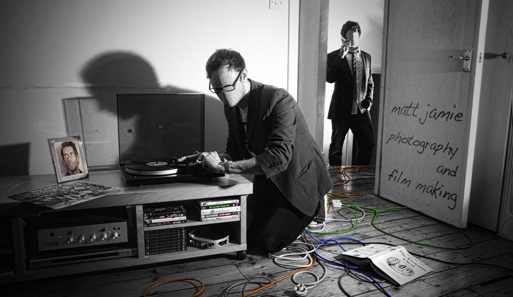ASK & DISCUSS
INDEXis a film shoot tax deductible?
12 years, 9 months ago - Matt Jamie
As a freelance film maker there are lots of things I can claim as expenses for tax. I'm wondering though if I make a short film which is self-funded, can i claim all the expenses incurred on the shoot (food, expenses for the actors, and fees I might pay talent/crew) against tax as a sole-trader? Or do i need to set up a "production company" for the film through which all these expenses go? And if so, how does one do that!? Any thoughts, or references to online documentation would be amazing. (I've made films before where the expenses have gone through the books, it's more specifically things like wages for cast or crew which are less obvious and could look like I'm just giving money to mates and claiming against tax!)
Thanks. Matt
http://www.mattjamie.co.uk
Only members can post or respond to topics. LOGIN
Not a member of SP? JOIN or FIND OUT MORE
12 years, 8 months ago - Matt Jamie
Hey, many thanks for your answers. I've already been self-employed for 12 years so I'm earning revenue as an actor, film maker and photographer. With short films, ultimately they are to improve my profile but are not commercial ventures (other work covers that base) - so they would be "loss leaders" in a sense. It's the issue of more "grey" expenses such as paying actor or crew wages (albeit nominal like £50 a day) - but I assume if I get them to invoice me then I have the paperwork to show these as genuine expenses? Travel expenses and studio hire etc are obvious in that there is a service being paid for, but I wondered whether wages come under a payroll issue which requires a company set up...?
12 years, 8 months ago - Jackie Clark
I am in the same boat and was advised to set up a limited company . I'm not self employed and have been wondering whether I did the right thing. Thanks, everyone for the advice. I too found it very usefull. My plan is to release Parallel Lines for monetized download and try to make some of my investment costs back.
12 years, 8 months ago - Ike Khan
No Matt you would not need to company set up to cover payroll - in any case you are effectively doing one of two things: 1. paying professional fees or 2. paying wages to subcontractors (who are outside the scope of CIS - Construction related, where special rules apply) - in either case all you need is an invoice - or at least some paper-trail like a contract/agreement, cheque or on-line payment.
Furthermore it is perfectly acceptable to HMRC for a sole-trader to have employees on a payroll, whether they are regular, part-time or temporary. The only caveat here is that by the new 2012 regs you would need to provide an approved pension scheme if they are permanent whereas it used to be okay not to provide one if you employed less than 5 people. But the "subcontractor" status negates this anyway.
HMRC also require you to distinguish between a "business expense" and a "capital expense"
If the films are to improve your profile then you can argue they are used to boost you future income and are therefore business expenses. Another way to look at it is that the short films you make and put on your web page are your advertising costs and it is perfectly acceptable to claim such expenses.
Sometime it's just a case of having your reasoning clear in your head and standing your ground. As with any financial entity, HMRC want to maximize their income and thus would always query such things if they thought they stood to gain more taxes. It would be up to you then to present your case which is a perfectly valid one.
You should read HMRC form SA103f - if you have trouble getting it then inbox me (ike@nkmmedia.com) and I'll send you a pdf.
12 years, 8 months ago - Paddy Robinson-Griffin
Just to add to something Ike mentioned, strictly speaking not all roles can be subcontracted (lowly grades, mostly) - whether someone is deemed an employee or subcontractor is up to HMRC, just exercise a little caution around thinking you can always make life easier paying on invoice for all roles.
12 years, 8 months ago - Paddy Robinson-Griffin
I'd suggest it's a bit of a grey area - if HMRC question it, you'd have to show that the films are a real 'business', not just a hobby. If this is going to be a real business venture for you, then paying for cast, crew, kit etc from the business isn't a problem, as long as cash is coming into the business as well (ie from clients). A ltd company is the 'ideal' setup, but it'll cost you real money each year in accountancy fees for year-end returns (allow say £1000/year if you do all your own bookkeeping, PAYE and VAT, significantly more if you just hand over a shoebox of receipts every 3 months). All depends how seriously you're taking it and if you have enough clients to make it worthwhile.
If you just want to self-fund non-commercial artistic youtube movies, you may have a harder time convincing HMRC that you should be able to deduct tax, so could find yourself exposed.
12 years, 8 months ago - Matt Jamie
Many thanks again - I'll look up that form, but it sounds pretty clear!
12 years, 8 months ago - David Graham Scott
Hey Matt....just looked at your website online and only popping by to say I'm very impressed with the photography I saw on there!! (still need to check your films) Brilliant work and I'd have thought all the work you do as a sole-trader could be bundled into one for tax purposes.
12 years, 8 months ago - Ashley Briggs
Hey,
Essentially yes you can do all of that as self-employed. If the payment to actors etc is with invoice or receipt then it's all by the books and as per any job/service you have paid for that is related to your business you can then offset your earnings against it. If it's a cash-in-hand thing then of course, no.
I'd find a producer to grill on this rather than hunting around online. They'll have the answers for you in 5 minutes, or get yourself a film-realted accountant.
Ash
www.inspirationgone.com
12 years, 8 months ago - murray woodfield
Hi Matt,
You have probably got enough advice as it is - but you are right about not needing to be making money out of the films to be claiming the expenses. These are legitimate professional technique and marketing expenses. It would help if you are entering films in a few festivals and/or uploading them to follow up the proof of the marketing. The Tax man is not the bogey man - it is a fair system if you adhere to transparency. All you need to do, as somebody already mentioned, have all the receipts and the invoices from crew and actors. All these people should be self-employed and addresses need to be on each invoice. As Ike says - as long as you are clear and can present your case in the unlikely event of a query there will never be a problem. Remember your legitimate business expences are arguably laying the ground work for a brilliant future career where you will be paying millions to the inland revenue!
All the best, Murray Woodfield - Artistic Director The UK Film Festival
12 years, 8 months ago - Ike Khan
I have to deal with HMRC on a regular basis on two levels - quarterly VAT returns and annual tax returns and to be honest HMRC are unlikely to look into anything with a small turnover as it would not be worth their while. It is however very important to be brutally honest with you book keeping which is something that every business is legally obliged to do. It is a very easy task but you need to become somewhat anal and always ask for receipts for all expenditure, use cheques or online payments in lieu of cash, and make records of every bit of spending and earning. The advantage of being a sole trader is that YOU are then the business and any money you earn, whether by making a big budget commercial or by stacking shelves is income for the business. HMRC can ask you to separate the accounts but this is a grey area. The question ultimately boils down to this: why are you making films? If you are doing so either to make a return on the particular film or because you are using it as a way to improve your profile in order to make money, then it is classed as a business activity. Supermarkets regularly sell items at a loss to attract customers with the goal of making money overall (loss-leader) but this is still classed as business activity.
If film making for you is a business activity then an initial important step is to have a business bank account. You will have to pay monthly fees for the privilege but we are lucky in the UK anyway as in most countries there is no free personal banking (my US personal account cost money on every transaction and a monthly fee). Then you can distinguish what is business spending and what is not. Then you have to keep records - you don't have to have them completely up to date but you should make them up for at least the last fiscal year. It is not essential to have money coming in from clients - your own money is classed as venture capital and it is quite legitimate to invest this into your own business whether you are operating as a sole trader, a partner or a limited company. HMRC do not expect people to turn big profits in the first few years of trading and it is thus normal for start-ups to declare a trading deficit (loss) in their first 2-3 years which can be offset against future profits. There are also rules about the 1st few years accounting which are quite lax as they take into account the pressures of setting up a business.
There are several advantages to running a business - eg do you use your mobile phone for business? Do you use your car for business? You may have to account for apportionment but it is nonetheless worthwhile. Look up Self Assessment for the Self Employed - there is loads of info on the HMRC.gov websites
9 years, 10 months ago - Giulio Gobbetti
Hi guys! I'll keep going here if you don't mind, just not to open a new topic. It seemed to me implied in what you said before, but I'll ask the outright question: can you claim festival fees as expenses as well if you are a freelancer?
9 years, 10 months ago - Paddy Robinson-Griffin
The general answer is that you can claim bona fide business expenses. If going to the festival is because you have a film in it and are likely to get a prize and do some networking then probably yes, if you're going to the festival as a punter I wouldn't have thought so. In every case it comes down to if you can justify to HMRC (if they check, and they do check) that the expense was line of business. Only you'll know.
9 years, 10 months ago - Marlom Tander
Giulio - Paddy is right. You have to HONESTLY be able to consider the expense to be genuinely in line of business. If you are making a profit as, for example, an actor or freelance crew, then the fees plus the travel and the B&B are all clearly deductible because networking. However HMRC do check and one area they look at is people who are trying to pretend that a hobby is a business. So if you are a plumber who shoots shorts but has little to no revenue, don't expect to able to lose X grand a year off your higher rate liability by arguing that your films are a business. If you are said plumber but HAVE film revenues that amount to a reasonable proportion of your costs, then it would be much easier to argue that it's a genuine business that you expect to take into profit in due course. In this case I think HMRC are willing to accept a few years losses before they get tough.
9 years, 10 months ago - John Lubran
This post happened three years ago! The responses were excellent. I would add however that people ought not be quite so kow towing to the erroneous presumption of the powers of HMRC; whilst they are statutory body with statutory powers, some of which are in my opinion unlawful; but we won't go there just now, HMRC are not the arbiters of the Law, not even the legislation they are impowered to investigate. It's their investigatory powers that make HMRC s a bit scarier than others. If HMRC want to prosecute anyone or challenge anyone's assertions or claims they still have to prove it in a court of law. HMRC lose a great many cases in court to which I can attest to personally. HMRC rely on brow beating and threats but when faced with determined and rational challenges despite their sometimes even draconian deployment of investigatory powers they will often capitulate because they fear the courts as much as anyone. Losing cases at law is more than just embarrassing for them. So called "grey areas" as referred to in this conversation, favour the defence. In law a statement or declaration of truth is the truth, unless disproven beyond all probable doubt in civil law or all possible doubt in criminal law. The business enterprise of film making provides for a vast range eclectic and legitimate tax deductible expense. I can also suggest competent accountants who'll keep your Ltd., company books straight for between £400 and £800 per year if you do your own quarterly VAT.









